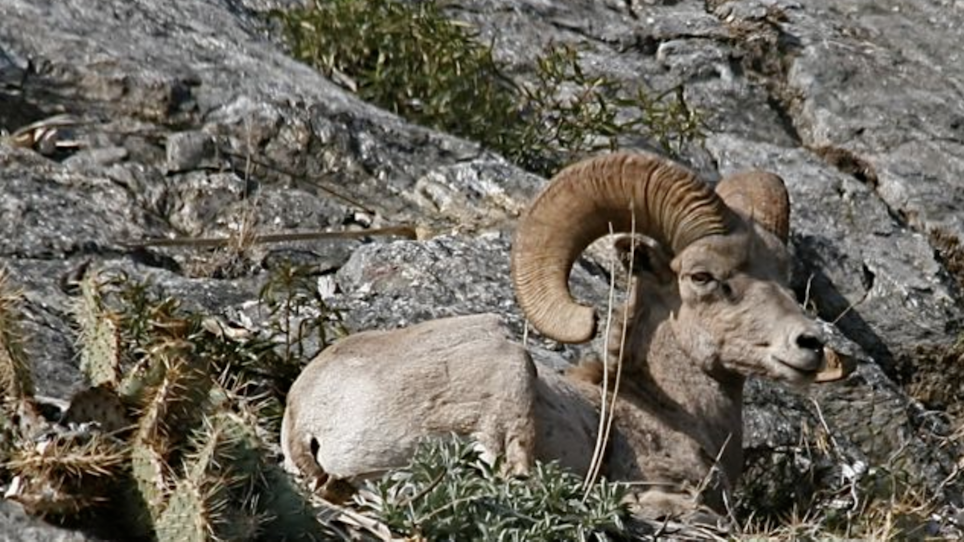Wildlife biologists from the California Department of Fish and Wildlife are investigating what appears to be a significant mortality event associated with respiratory disease among the San Gorgonio desert bighorn sheep population in Riverside County.
CDFW has confirmed that at least 20 animals have died but suspects that total mortality may be greater.
“The significance of this outbreak to the San Gorgonio desert bighorn sheep population is being investigated,” Heidi Calvert, an environmental program manager with CDFW’s Inland Deserts Region, said in a press release. “Our top priority right now is to determine the source and nature of the disease so that we can identify the right management actions to mitigate future risk.”
CDFW staff began receiving reports of sick desert bighorn sheep in December 2018 and immediately began collecting samples for lab analysis. CDFW is continuing to survey and monitor the population to gather more information on the extent and magnitude of this loss to the population. Private landowners and partner agencies are assisting with this effort.
The Western Association of Fish and Wildlife Agencies Wild Sheep Working Group considers respiratory disease to be “the biggest impediment to restoring and sustaining bighorn sheep populations.” Respiratory disease in bighorn sheep is most commonly attributed to contact and/or proximity with domestic sheep and, to a lesser extent, domestic goats. Diseases that originate with domestic animals can pose a significant risk to bighorn sheep populations.
The affected desert bighorn population is located within Desert Bighorn Sheep Hunt Zone 5. The recent die-off will likely result in reducing the two hunting tags to zero in this zone for 2019.
Source: California Department of Fish and Wildlife






